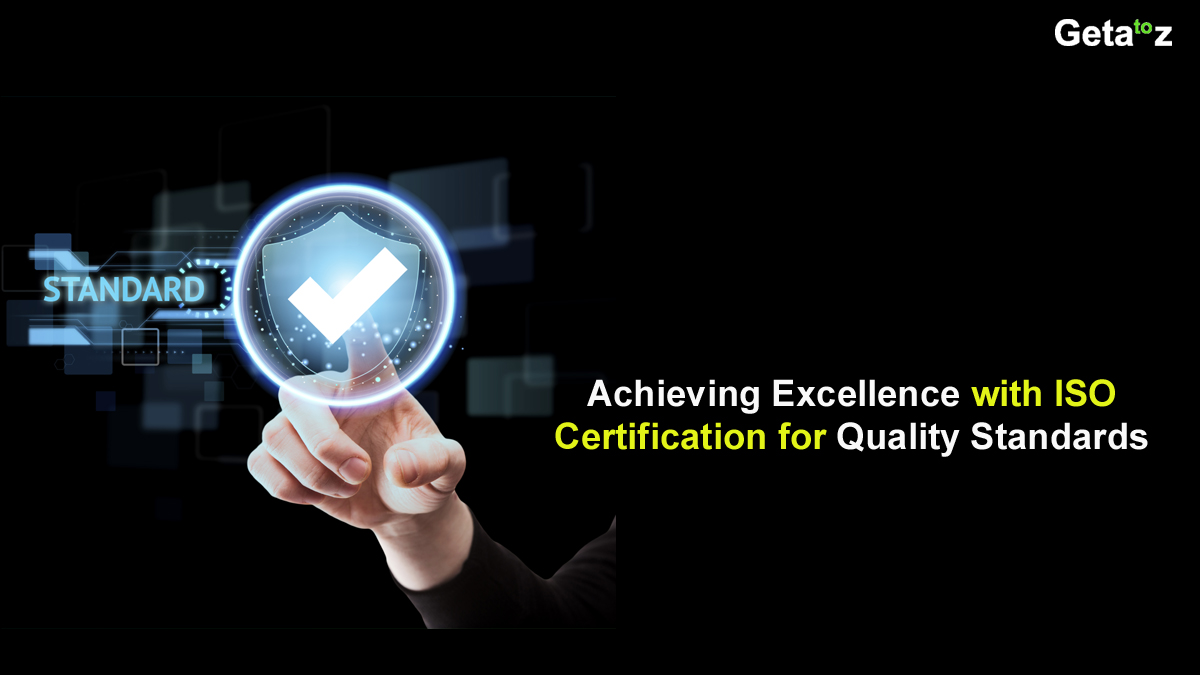ISO certification
Updated: December 7, 2024

What is ISO certification?
ISO sets the standards but does not handle the certification process itself. A company must find an external certification body to obtain ISO certification. Achieving ISO certification signals that your business is legitimate, reputable, and capable of meeting international standards, indicating its potential for development and growth. It is a crucial certification for manufacturing companies, assuring future customers of your reliability.
The key benefits of ISO certification include increased efficiency, employee engagement, reduced risks, enhanced customer satisfaction, and higher sales. Additionally, ISO certification can make international business insurance more affordable. To maintain certification, businesses must continue meeting international standards and deliver exceptional customer service.
ISO certification is not awarded to individuals or employees; it is granted only to businesses.
Different Types of ISO standards:
ISO 9000: Quality Management
Quality is essential for meeting customer expectations as a manufacturer. ISO 9000 standards focus on quality management, guiding businesses on how to meet or exceed customer requirements when they place an order. For example, ISO 9001 certification demonstrates that your business is customer-focused and committed to delivering consistent, high-quality products.
ISO 14000: Environmental Management
This standard provides the tools and guidelines businesses need to adopt environmentally responsible practices. ISO 14000 is increasingly important for attracting international customers, as many now prefer to work with eco-friendly manufacturers. Key factors include sourcing raw materials sustainably, using eco-friendly packaging, recycling, and improving energy efficiency.
ISO / IEC 27000: Information Security Management Systems
ISO / IEC 27000 standards are designed to protect businesses and customers from online threats. As cybercrime grows globally, these standards help safeguard intellectual property, confidential employee and customer data, and financial information, offering peace of mind to businesses and customers alike.
ISO / IEC 17025: Laboratory Risk Assessment
This standard encourages national and international collaboration among laboratories and organizations to improve the quality of manufactured goods, especially in sectors like cosmetics, medical products, and food and beverages. Sharing test reports, research, and lab results helps enhance product quality and innovation.
ISO 13485: Medical Equipment Standards & Safety
ISO 13485 sets high standards for medical equipment to ensure consumer safety. Medical devices used for diagnosis, disease prevention, and treatment must undergo rigorous testing. Manufacturers of medical devices and equipment must adhere to these standards to deliver accurate, reliable, and safe products.
ISO 45001: Occupational Health & Safety
ISO 45001 outlines the requirements for maintaining a safe workplace or factory environment. This standard is designed to reduce workplace accidents and ensure employee safety. It reassures customers that your business prioritizes the health and well-being of its workforce.
Importance and Benefits of getting ISO-Certification:
- Environmental performance of your supply chain can be improved.
- You will become compliant with international regulations and legislation.
- You can establish yourself as an eco-friendly, health and safety conscious and reputable manufacturer.
- Workplace accidents, incidents, and errors can be reduced.
- Excellent customer service can be provided and repeat customers can be generated.
- Financial performance and risk management can be improved.
- International standards of excellence and increase sales is possible to meet or exceed.
How to get ISO Certification:
- You need to first select different certification bodies and evaluate them.
- Ensure that the certification body you chose, uses and follows the CASCO standard you want.
- Check if the certification body is accredited. Although, it is not necessary to get accreditation, but it could be a confirmation of the capacity and reputation of the certification body.
- The type of ISO certification you want need to be chosen.
- An application or contract with the third-party provider need to be created.
- The relevant documents should be provided for review.
- Make an action plan and undergo an initial ISO certification audit.
- Complete the ISO certification and have on-going surveillance audits.